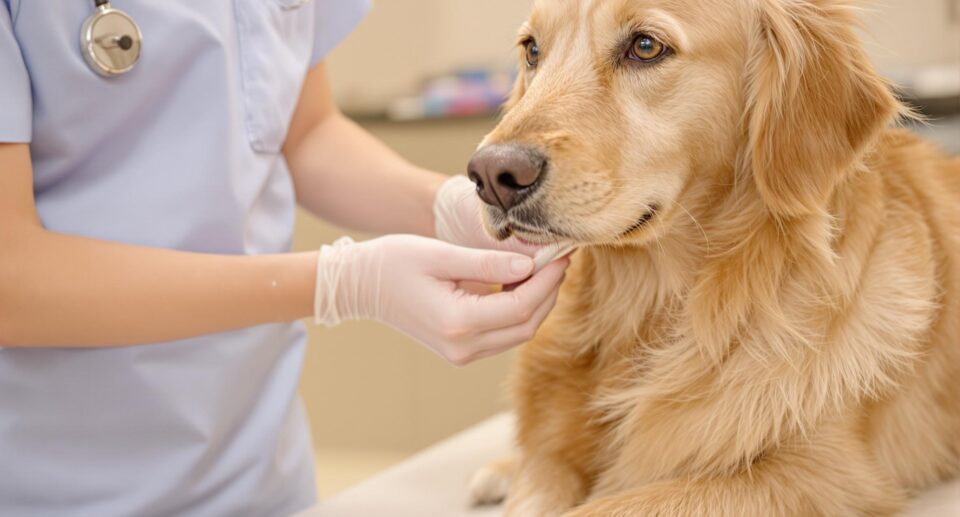Can My Dog Donate Blood?

Donating blood is one of the easiest ways you can save a life. Your dog can be a hero, too, if they can meet a few easy requirements.
Requirements For Dog Blood Donors
The ideal canine blood donor is calm and friendly, and doesn’t mind gentle handling.
Each facility has its own requirements for dog blood donors. Generally, your dog must be at least 35 to 50 pounds to qualify. They should be healthy, with no past pregnancies or blood transfusions. They should also be up to date on all of their vaccinations.
Your dog can begin to donate when they are about a year old, and can continue to donate until they become a senior, or around nine years old. Your dog may not have a heart murmur, nor should they be on any medications other than flea, tick and heartworm preventatives.
Like humans, dogs have different blood types, or “groups.” There are over 12 different canine blood groups, though about 40 percent of dogs have the universal blood group, so their blood is compatible with any recipient. While those with the universal blood group are the best donors, dogs of all blood groups are welcome to donate.
What Happens When Your Dog Donates Blood
On average, the donation takes between 20 and 30 minutes. It is preferred that you will not be present during the procedure, as dogs seem to cooperate better when their owner is not in the room.
Your dog will not need to be sedated. They will be gently laid down on their side during the procedure. Your dog will be soothed as the area around their jugular vein, located at the side of the neck, is cleaned, prepped, and possibly shaved. Then, their blood is collected through a needle.
Afterward, your dog will be offered yummy treats and/or IV fluids to replenish the blood they will have lost. For up to 72 hours, your dog may experience mild soreness at the donation site, then they’ll be as good as new.
Your dog can donate blood as frequently as every three weeks, though it’s more common for dogs who participate in blood donation programs to give blood a few times per year.
Benefits To Having Your Dog Donate Blood
The best reason to have your dog donate blood, by far, is to save the lives of other dogs. Blood donations are always needed to provide life-saving transfusions for dogs who are undergoing surgery, are suffering blood loss from trauma (for example, after being hit by a car), being treated for cancer, kidney disease and other medical emergencies.
Your local animal blood bank or veterinary clinic may offer additional incentives as well. Your dog will receive a complimentary physical exam and bloodwork to ensure that they are an eligible donor. Your organization may also offer free food, veterinary care and products to donors.
Ask your vet to help you find a pet blood bank near you.





